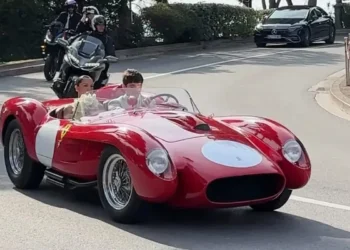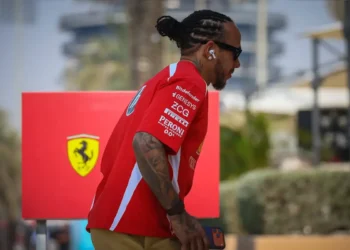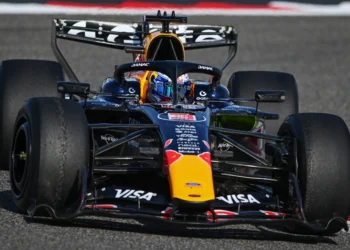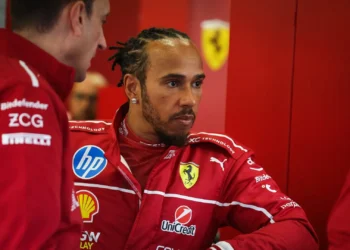Mercedes Team Principal Toto Wolff has revealed that the decision to promote Kimi Antonelli to Formula 1 in 2025 stems from lessons learned the hard way—when Max Verstappen slipped through Mercedes’ fingers and joined Red Bull. The sting of that missed opportunity still lingers, driving Wolff to ensure history doesn’t repeat itself.
The Verstappen Blunder: A Cautionary Tale
Back in 2013, as Verstappen dazzled in his debut F3 season, Niki Lauda, Mercedes’ consultant, was insistent on securing the Dutch prodigy for the Silver Arrows’ junior academy. Lauda’s phone call to Wolff was direct:
“We absolutely have to get Verstappen!”
But Wolff hesitated. At the time, Mercedes had a stacked lineup, including Valtteri Bottas and a strong pool of junior drivers. Wolff dismissed Lauda’s recommendation, leaving the door open for Red Bull’s Helmut Marko to swoop in with a Formula 1 seat at Toro Rosso (now AlphaTauri). The rest is history—Verstappen debuted in 2015, became F1’s youngest race winner in 2016, and delivered Red Bull four Drivers’ Championships.
Reflecting on that misstep, Wolff admitted,
“I didn’t want to lose Antonelli like I did with Max Verstappen in the past when I didn’t have a car for him.”
The Kimi Antonelli Gamble
Fast-forward to 2025, and Wolff has no intention of letting another generational talent slip away. Kimi Antonelli, a rising star from Mercedes’ junior academy, is seen as a driver with immense potential. Despite Antonelli’s relative inexperience, Wolff made the call to promote the Italian teenager to a full-time Mercedes F1 seat to replace Lewis Hamilton.
Antonelli’s multi-year contract provides Mercedes flexibility to evaluate his performance. If the young Italian fails to meet expectations in his rookie season, the team holds the option to part ways after 2025. But the stakes are high, and Wolff’s move signals his confidence in Antonelli’s raw talent.
A Second Chance at Legacy
The move also reflects a shift in Wolff’s approach to driver development. Having lost Verstappen, the Austrian executive understands the importance of seizing the moment. Mercedes’ dominance, once unshakable, has been challenged since Verstappen’s rise with Red Bull. The Dutchman ended Mercedes’ seven-year reign in 2021, a feat that underscores the cost of the team’s hesitation a decade ago.
Max Verstappen’s Legacy Looms Large
Verstappen’s continued dominance has left other teams wondering what might have been. With 49 race wins and four consecutive titles, the 27-year-old has cemented himself as one of the sport’s greats. But as Verstappen approaches fatherhood and contemplates an early retirement, his legacy may soon take a new turn.
Rumors suggest Verstappen could step back from full-time racing before his mid-30s, leaving Red Bull as his only F1 employer. This potential early exit raises questions about what Verstappen’s impact could have been had Wolff acted differently in 2013.
Can Antonelli Live Up to the Hype?
Kimi Antonelli’s rookie season will be one of the most scrutinized in F1 history. The 19-year-old will carry the weight of Wolff’s redemption hopes and Mercedes’ legacy on his shoulders. The stakes? Prove that Mercedes’ faith in his potential was well-placed—or risk being cast aside, as the sport demands results over sentiment.
Conclusion: Will History Repeat or Rewrite Itself?
Toto Wolff’s decision to rush Kimi Antonelli into Formula 1 is not just about nurturing young talent—it’s a calculated attempt to rewrite a narrative that began with Verstappen’s rise at Red Bull. Whether Antonelli can deliver on his promise or become a cautionary tale remains to be seen, but one thing is clear: Mercedes is determined not to miss the boat this time.
As the 2025 season unfolds, the spotlight will shine brightly on the young Italian—and on Toto Wolff’s ability to groom F1’s next superstar.










